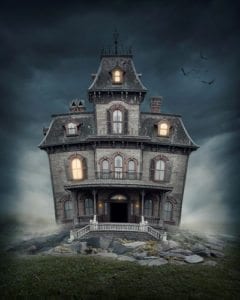This House Has a Problem… A Murder Problem
If you’re going to be buying a home, you have a few things that you will need to check out before you decide whether you want to put in an offer. Naturally, you want to know more about the neighborhood and the schools. You want to make sure the home is structurally sound and that you won’t have any expensive surprises down the road, such as needing to get a new roof. Inspections and a little due diligence can go a long way.
However, there’s something else that you might want to check for as well. You should check to see if it’s a murder house. Many people believe that the real estate agents that are selling the house are supposed to disclose this information. However, that’s not always the case, depending on where you live and the circumstances. This means that some people have unwittingly bought a house where a murder had been committed.
A Great House Turned Bad
In June of 2007, Janet Milliken bought a home in Thornton, Pennsylvania for $610,000 through Cascia Corp. While she was happy with the home when she first got it, things changed a few months after moving into the place. This was when she and her family learned that their idyllic home was not quite as perfect as they had hoped.
A neighbor told them about what had happened with the previous people who lived in the house.
Just a Short Time Before the Milliken Bought the House
In February of 2006, a man named Konstantinos Koumboulis who owned the home shot and killed his wife and then himself. The deaths were common knowledge in the local area, but this was something that Milliken says she did not know when she bought the place from Kathleen and Joseph Jacono. These two bought the property at auction for $450,000.
They then cleaned and renovated the home, so they could put it back onto the market, flip the home, and turn a profit. It was listed for sale by June 2007. This was only about 16 months after the murder/suicide. They told the listing agents about the deaths and wanted to know if it was a material defect, meaning they would have to disclose this to the next person who bought the house.
The agents said that they didn’t think that disclosure was required, but they thought that it would be a good idea to disclose it. The Jacanos said that they had investigated the problem and did not want to disclose the murder/suicide. They didn’t and neither did the real estate agents.
What Did Milliken Do?
Naturally, she was unnerved about living in a home where that type of violence happened. She decided that she would sue the Jaconos for not disclosing the deaths. You might think that the courts would rule in her favor, but that’s not what happened at all.
The two lower state courts ruled in favor of the realtors and said that the Pennsylvania real estate and commerce laws did not require the realtors or their clients to disclose the deaths.
When she took the case to the Pennsylvania Supreme Court, they also sided with the realtors. The attorney who represented RE/MAX, through which Cascia Corp. is connected, said that he was happy with the decision and that murder/suicide should not be a material defect in the property, so there was no reason to disclose it.
What Should You Take from This?
Some states require that real estate agents disclose psychological stigma events like this. Pennsylvania is not one of them. No matter where you are buying a house, you might want to dig a little deeper than just an inspection and neighborhood information to see if there are skeletons in the closet.

